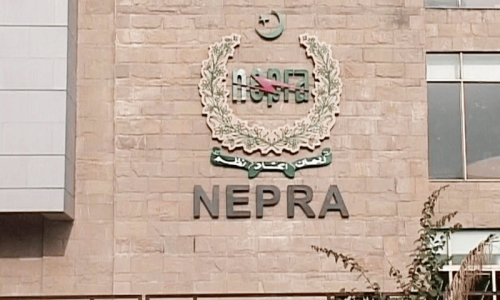ISLAMABAD: Participants of the fourth edition of Islamabad Dialogue on Friday welcomed the upcoming visit of Indian Foreign Secretary S. Jaishankar to Islamabad.
They expressed the hope that the visit would lead to the start of a sustained Pakistan-India bilateral dialogue.
Islamabad Dialogue is a Track-II initiative jointly organised by the Jinnah Institute and India’s Centre for Dialogue and Reconciliation.
The fourth edition of Islamabad Dialogue held on February 26-27 in Islamabad was participated by diplomats, parliamentarians, policy-makers and journalists from the two countries.
“We welcome the Indian foreign secretary’s visit and we hope that it will be the harbinger of the start of a sustained and result-oriented dialogue between the two countries,” said Vice-President Jinnah Institute retired ambassador Aziz Ahmed Khan at a press event at the culmination of the two-day event.
“All signs point towards a degree of optimism (about the upcoming India-Pakistan engagement),” Mr Khan said as he unveiled a resolution adopted by the participants of the dialogue outlining recommendations for Indian and Pakistani governments to improve bilateral relations and address outstanding issues.
The recommendations made to the two governments included observance of ceasefire along the LoC and Working Boundary; effectively tackling the threat of terrorism; implementation of the existing confidence building measures and finalisation of the additional CBMs that are under consideration.
The resolution also recommended removing the information exchange barriers; implementing the steps agreed under visa liberalisation regime in 2012; cooperation for peace and stability in Afghanistan and urgently addressing the issue of climate change.
A statement by Jinnah Institute said that during the two day event the “delegates discussed the prevailing political situation in both countries and its impact on shaping the bilateral relationship”.
In one of the segments dedicated to the role of media in bilateral ties, journalists discussed the factors that prevented them from contributing towards normalization of relationship.
“They called for opening up of airwaves for news and TV channels and a liberalisation of the visa regime for mediapersons from both the countries,” the Jinnah Institute statement said.
The participants also welcomed the developments in Afghanistan.
The JI statement further said that “finally participants noted the impact of climate change on South Asia and urged both governments to closely cooperate in addressing water management, environmental degradation, maintenance of catchment areas and alternative energy solutions.”
Participants of the conference included Sherry Rehman, Aziz Ahmad Khan, Najmuddin Shaikh,Salman Bashir, Farhatullah Babar, Mariana Baabar, Shafqat Mahmood, Talat Masood, Zahid Hussain, Saradar Attique Ahmad Khan, Mohammad Ziauddin, Shafqat Kakakhel, Amir Mateen, Hamid Mir and Murtaza Solangi.
Indian delegates included Prem Shankar Jha, Jayant Prasad, Amit Singh Chadha, Sushhobha Barve, Suhasini Haidar, Jyoti Malhotra, Aakar Patel, Shubhra Chatturvedi and Omair Ahmed.
Published in Dawn, February 28th, 2015
On a mobile phone? Get the Dawn Mobile App: Apple Store | Google Play











































